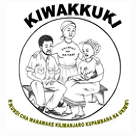ESTABLISHEMENT OF THE KIWAKKUKI YOUTH FRIENDLY VCT SERVICES, EARLY DIAGNOSIS, AND REFERRALS TO OTHER MANAGEMENT CENTERS THROUGH KIWAKKUKI YOUTH CENTER (KYC)
DEFINING THE YOUNG:The terms “adolescents”, “youth” and “young people” are used differently in various societies. These categories are associated—where they are recognized at all—with different roles, responsibilities and ages that depend on the local context.Key life events—marriage, sexual debut (first sexual intercourse), employment, childbearing, acceptance into adult organizations, political participation — occur at differing times between and within societies. The commonly used different demographic, policy and social context :
- Adolescents: 10-19 years of age (early adolescence, 10-14; late adolescence, 15-19).
- Youth: 15-24 years of age.
- Young people: 10-24 years of age.
IN TANZANIA
* There is a significant large number of youth proportions of group people
* It is estimated that over 44.9 million people in Tanzania (2012 census), 65% are aged Below 25 years. Young people aged 10-24 years constitute about 30% of the total Population. Therefore in terms of their large number the youth is an important Sector for Social services including reproductive health services.
* Effective strategies are needed to be put in place to address the urgent sexual and Reproductive health needs of the youth.
* Youth in Tanzania are reported to initiate sexual intercourse very early in life.
* By the age of 15 between 20-30% of the girls and boys respectively are reported to be Sexually active.
* However at the age of 18 years the proportion is reported to be between 65-80% for the girls and the boys respectively (Leshabari 1988) and (Kapiga 1991). Most of the sexual indulgence is believed to be driven by peer pressure as well as cohesion from adults.
* There is some perceived stigma to inform adolescents about sexuality either in formal Institution or informally. Invariably the youth unsafe sex thus exposing them to many Sexual reproductive health related problems.
* Unwanted pregnancy is one problem facing young girls in the country, raising concern On their sexual and reproductive health rights.
Sexually transmitted infections including HIV/AIDS are a major problem among the youth in Tanzania. According to hospital reports of attendance to STI clinics in Dar es Salaam City and estimated 30% are young people aged 15-24 years. The National AIDS Control Program (NASP) surveillance report No 16 indicates that most reported cases of AIDS falls within the age group 20-49 years, with the peak of reported aged in the age of 20-24 years and 30-34 years among female and male respectively. This pattern suggests that most individuals acquire the infection during their late adolescence given the median incubation period of about 10 years.
objective: reduce the rate of HIV and other sexually transmitted infections to promote health among youth and create an AIDS free generation.
Currently reproductive health services in Tanzania are generally perceived to be structured to serve adult women and men. Therefore they are seen as unfriendly and less attractive to the youth.
The modus operandi: infrastructure, operating hours, training and attitude of health care providers, are generally not youth-friendly. To encourage youth to patronize and use these services KIWAKKUKI plans to put concrete actions and decisions in order to make the services more youth-friendly and acceptable it the general primary objective:
To have youth attending user friendly VCT services and Referral to care and treatment services to other support centers
BASELINE DATA FOR YOUTH VISITORS COUNSELED & TESTED IN 2010
AT KIWAKKUKI VCT
No of Youth visitors age 10- 24 counseled and Tested 2010 were 780. Female 444 and male 336.
- Total male and female youth visitors age 10 -24 found with HIV infection were 34 out of 780 or Prevalence rate of 4.3%
- Male youth visitors age 10- 24 found with HIV infection were 4 out of 336 or prevalence rate of 1.1 %
- Female youth visitors age 10- 24 found with HIV infection were 29 out of 444 or prevalence rate of 6.5 %
Prevalence rate for Female Youth Visitors is very high compared to their male youth counter part pinpointing the importance of VCT & KYC to offer In-depth knowledge on Sexual and Reproductive health to this vulnerable group our focus will be to the female youth who are mostly infected with the HIV virus.
KIWAKKUKI Youth Centre (KYC) visitors to the Internet Café of the period Jan-Dec.2012 was 2354 youth. Out of these 563 231m 332f opted for Voluntary Counseling and Testing and the prevalence was 8 +ve. 5f 3mwhich is 1% of youth after receiving lessons at the KYC.
At Kiwakkuki Youth Centre (KYC) we offer computer applicati0n free for the young people aged 8 years old up to 25 years old.

![kiwakkuki OUR DEPARTMENTS - KIWAKKUKI Youth Centre [KYC]](uploads/pages/1550570538.jpg)